Beatles remastering team answer your vinyl mono box questions
The Beatles in Mono vinyl box set is finally out and has been getting stunning reviews across the music press.
Abbey Road’s Sean Magee – now a veteran when it comes to Beatles projects – was the mastering engineer for this enterprise and he was joined by industry legend Steve Berkowitz, a man who appears to have done *everything* in the music business – a veritable master-of-all-trades with a lifetime of experience in roles such as producer, music marketeer and A&R man, studio owner and artist manager. Steve worked alongside Sean as mastering supervisor for The Beatles In Mono box set.
A few weeks back SuperDeluxeEdition readers submitted their Mono Box questions in the hope that either Sean and/or Steve would provide an answer. We removed duplicates and collated the best questions and we are delighted to bring you all the answers direct from the remastering team.
A few points about the answers, before we begin… Sean and Steve answered the questions separately via email and there are a few questions where Steve left it for Sean to answer, which is why there are not always two answers to ask question. Enjoy…
Beatles in Mono Vinyl Box Set Q&A
1. From Bill Lettang: I would like to know if the goal was to come as close as possible sound wise to the original British pressings or the Master Tapes themselves?
> Steve Berkowitz: “The goal of the new MONO vinyl Beatles re-issues is for them to sound and feel as close to the originally released U.K. MONO pressings from the 1960’s.”
> Sean Magee: “The goal for me was both.”
2. From Scott C: Can you detail some of the differences you found between the original mono vinyl, the original mono tape, and the 2009 mono CDs
> Sean Magee: “There’s too much material to try and remember any instances. The cd’s were made to sound like the records we had, old ones, the new vinyls were to sound like new 1960’s ones. Cd’s and vinyls are different beasts so I wouldn’t compare them. Tapes sounded great.“
3. From Michael: Were any bad edits amended or microphone pops removed as they were for the 2009 remasters?
> Steve Berkowitz: “Other than transferring the original analog tapes from the tape to the newly cut disc – passing through Sean Magee’s analog board in Room 6 @ Abbey Road and utilising minimal eq settings – no ‘bad edits’ were changed – the master tapes were not changed for this release. The content is as it was when first released.“
> Sean Magee: “No, as it would not be possible to do this as it was an all analogue process and therefore no digital trickery could have been used. Edits that broke were re-spliced with new splicing tape.”
4. From Uldis Lavrinovics: Would you please confirm the signal all the way from master tapes to vinyl press form remained analog?
> Steve Berkowitz: “The signal from the original tapes through to the new pressings remained analog throughout – these are completely analog albums.”
> Sean Magee: “Yes.”
5. From Geert De Wilde:More than ever there seems to be a huge difference between the sound a modern sound system produces (most of them boost the bass as a rule) and the ‘ideal’ sound (or the unaffected, sec, sound). Do you take these differences into consideration when you adjust/remaster (and if yes, how?), or do you produce a remaster which exists in a vacuum – which sounds perfect by its own standards?
> Steve Berkowitz: “The goal of the new MONO vinyl Beatles LP re-issues is for them to sound and feel as close to the originally released U.K. MONO pressings as possible. They are recordings – masterpieces created in the 1960’s and they are re-issued and mastered to reflect the creators original sound and intention.”
> Sean Magee: “I make the master sound good to my ears, in my room (my “vacuum”), within the bounds of my brief.”
6. From Martin: How does the bass on these new pressings compare with the original 1960s vinyl? My only disappointment with the 2009 CDs was that the bass was not as full sounding or as prominent as it is on my 1960s vinyl, especially Revolver and SPLHCB. Don’t get me wrong, the 2009 mono CD box is great but I’m hoping the vinyl will not disappoint in any way in terms of the bottom end on these new LPs!
> Steve Berkowitz: “Every technical effort and decision was made to sound like the original 1960’s released albums”
> Sean Magee: “The bass should be comparable. Bear in mind that the equipment I use and the equipment used the 1960’s is completely different, also bear in mind that you are also probably hearing differences in level. Once you level match everything they are all comparable.“
7. From Philipp: There are conflicting reports about the mixing of the White Album – some sources say the Beatles were involved in mixing both the stereo and the mono versions, others say they were only personally involved with the mono version and just “approved” the stereo mixes. However, it is widely known that, for example, “Revolution 9″ was mixed in stereo only and later folded to mono. 13 out of 30 tracks were mixed in stereo first and in mono later. So my question is, would you say that the mono version of the White Album is “definitive”, or are both mixes essential?
> Steve Berkowitz: “The mixes of THE BEATLES (WHITE ALBUM) in MONO and stereo are different – the content and focus on some tracks vary noticeably. For this re-issue we accessed the original MONO analog master mix reels. For a complete overview of the differences in the mixes – I suggest you read from the writings of Ken Howlett and Bruce Spizer for specific analysis.”
> Sean Magee: “No idea, I wasn’t there”
8. From Paul: If I have the Mono CD box, is this an essential purchase?
Steve Berkowitz: “Personal choice and or familiarity steers listeners to one or the other …or that is the one you have had in the past. Both were purposely and knowingly released.
Are they an essential purchase? That’s up to you if you want to have these albums in MONO on vinyl. If you are a Beatles fan or an audio fan or collector – or new to vinyl – my opinion is – Yes – they are essential.”
> Sean Magee: “If you want to play Beatles mono Lp’s then having just a cd box will not do, you’ll need this box.”
9. From Sten Sawicz: Will we ever reach the limit at which the recycling and remastering of an artists’ back catalogue becomes pointless, due to the fact that even with the greatest audio set-up, the most fanciful kit, the human ear can only decipher so much in the way of sound, or is somebody’s audio perception better than somebody else’s?
> Steve Berkowitz: “The Beatles music, songs, recordings, albums have always been great – new listeners come to this discovery everyday. The classics are the classics – formats – technology – playback gear and their availability come and go – change – evolve – in some cases devolve.”
If you are new to this music or new to having vinyl as a listening option this is an entry point that is meant to sound like the original MONO vinyl. They sound great.”
> Sean Magee: “Depends on the future development of equipment and market demand. Who can say, have we reached the limit yet?”
10. From James Grant: I was curious about the damage to the mono “Please Please Me” master. Was it stored differently from the other masters? Is it beyond playable now? When was the copy tape you used for this new set made, just recently or is this an older copy tape?
> Sean Magee: “There is no damage, just glue having seeped from editing splices. This got in the way of a successful clean playback, and rather than risk damage, a new master was made. I think this was the most prudent course of action.”
11. From Michael: I’ve read that Magical Mystery Tour and Mono Masters were cut from tape copies of the original master tapes. I assume they still sound great but I wonder: why haven’t new reels containing the first generation tapes of the material been assembled and used to cut these albums?
> Sean Magee: “MMT and Mono Masters don’t exist as original albums, It was better to make masters from good transfers, than pull all the single masters from their various reel and splice them together for a triple album cut and then put them back on their respective reels, and do this every time a new master is required by the factory. MMT in the UK was only an EP.”
12: From Mike the Fish: How many attempts did it take to get the Sgt Pepper inner groove right?
> Sean Magee: “I’ve done this lock groove 9 times now. Originally it was 15 goes for the stereo, I had to do this for both the EUR and USA pressings, for the mono, it originally took 9 goes, then I think a further 9 or 10 once we moved to all analogue.”
13. From Tom Hermance: Was there one particular album that gave you more sonic trouble than the others? If so, which album and what happened?
> Steve Berkowitz: “All of the albums are unique and the original vinyl versions are audible and attainable from the original analog MONO master tapes from The Beatles vault.
No, no one album was more difficult than the others – except for maybe, Sean’s cutting of the infinite loop at the end of Sgt. Pepper – that was and is tricky and Sean nailed it.”
> Sean Magee: “They all behaved very well, and that’s all credit to the engineers that recorded them.”
14. From David Olstein: I’ve read that the mono single master for Please Please Me has a drier sound that then mono album master. Are there in fact two different mono masters for Please Please Me (a single master and an album master) and if so, why wasn’t the mono single master included on the Mono Masters LP?
> Sean Magee: “No idea, I’ve never seen a single master for that, others can answer.”
15. From Richard: What would be the best equipment to enjoy this set? I have a nice fancy deck with a decent amp and good speakers. But I’ve also recently bought an old 60′s Hacker machine for the kitchen with mono needle and mono speaker. Is it sacrilege to play such a deluxe set on a portable machine or will I enjoy it more on my grown up deck?
> Steve Berkowitz: “Everyone listens differently – from varied places and from different gear. People either have – their record player or a specific preference for cartridge, turntable, pre-amp, amplifier. speakers – volume level – location – in their car – through headphones – on desk top speakers – through expensive speaker towers.
These albums and re-issues, as always, are suitable for all record players – it is a personal choice. Better gear does offer better fidelity.”
> Sean Magee: “I think you’ll enjoy it where ever you listen to it, that’s the whole point of the music…and that’s what it’s all about.”
16. From David Olstein: With the possible exception of Abbey Road, all of the Beatles LPs were originally mastered and cut using tube equipment. Did you consider using tube equipment for this project and what effect, if any, do you think your use of solid-state equipment had on the sound of the LPs?
> Sean Magee: “No as I don’t have any…the biggest effect on the sound would be the ability of the tape machines and cutting lathe to reproduce, more faithfully what’s on the tape, cleaner mains, less noise floor…”
17. From David Olstein: Do you think it would be possible to create new stereo LP reissues using the same all-analog process used to make the mono LP reissues? In what ways do you think all analog stereo LPs reissues would sound different that the recent stereo LP reissues?
> Sean Magee: “It would be possible, but they would not sound the same as the eq choices and repairs that were done would not be possible to do in realtime, so they would be like the originals. The point of this box is that the Mono mixes were the way the band heard them, and the way they were indended. This is a historical document and frankly, the stereo versions, excepting Abbey Road and Let it Be, and some of the White album. Don’t have that. There are plenty of stereo Lps out there, millions in fact.“
18. From Gidgets Ga Ga: What were the reference monitors used for the mono playback testing for the set?
> Sean Magee: “Bowers & Wilkins 800D powered by 4x Classe CA – M400 amps”
19. From Peter Simpson: Seems to me that a lot of quality work is spoiled by off centre pressings (which seem increasingly common possibly due to the pressure on pressing plants these days). What steps, if any, can you / do you take to minimise the risk of these occurring in an expensive box set?
> Steve Berkowitz: “Close review and examination and playing back the test pressings is a way to cut down on any pressing and productions problems.
Sean Magee and I have listened and reviewed extensively and repeatedly to the test pressings of this set – so far – all test pressings were centered (with the hole right in the middle of the disc) and pressed in round.“
> Sean Magee: “None, as it is a pressing concern. We make sure Test pressings are perfect before we sign off, but the production run is all up to Optimal, and they did an amazing job.“
20. From David Olstein: Were the tapes played back on a reel to reel deck fitted with a mono playback head or a stereo playback head? Where the LPs cut on a cutting lathe that used a mono cutter head or a mono cutter head?
> Sean Magee: “Mono playback head yes…Mono cutter no. I have a modified SX74 head which I know better than my own family, borrowing a head would, for me, been a handicap.“
21. From Adey: Which album do you think is your favourite sounding one out of these remasters?
> Steve Berkowitz: “That’s a personal choice – and my choice varies from day to day. Not a cop out – but the truth.
These albums represent an incredible and rapid evolution in The Beatles – songs – concept – recording techniques – instruments used – from clarity to purposeful distortion and use and placement of frequencies. It is a personal choice.“
> Sean Magee: “All of them….”
22. From Botley: If the master tape of “Love Me Do” (original single version with Ringo on drums) is truly lost, and all subsequent reissues including Past Masters were taken from a cleaned-up single disc, did this disc also provide the source for the new Mono Masters vinyl? How was it transferred to the new master reel?
> Sean Magee: “We used the 96kHz repaired disc dub done for the remasters…this was transferred to tape for this project. Doing the edit again would have been crazy.“
23. From Bill Sennick: I own the original Capitol albums in mono and the more recent US albums box set in both mono & stereo. Will the sound on the new set be significantly different?
> Steve Berkowitz: “Yes, the sound on each of these sets are different.
This is the only MONO set to come from the original analog master tapes and throughout the production chain remain in analog.”
> Sean Magee: “You’d have to sit and compare them…I haven’t.”
24. From Chris R: On the ’09 remasters, the drums and bass were more present in the final recording than they’d been in the original issues. I was told that this was because cutting engineers in the 60s limited certain EQs to prevent older turntables and needles from damaging records. Is this true, and if it is true were these more present EQ settings allowed to exist on the new Mono vinyl?
> Sean Magee: “Records were cut very loud to stand out from the competition, some sacrifice must be made to achieve this and still be playable with the turntables of the era…there’s a little more we could let through as we don’t have the restrictions of needing to be loud, or the 60’s players….better vinyl too….but…the character is as the 60’s records.”
25. From Steve Benson: Two questions: how do these reissues differ (in sound) from the DMM reissues from the 80s? and second – how will they sound to modern ears vs our memories? – given that the equipment that most people had to play records on in the early mid 60s was very primitive compared to a modern or even 1970s hi-fi set up, and that the singles were heard by many via cheap tinny transistor radios. In essence are the new reissues too revealing?
> Steve Berkowitz: The new re-issues of the MONO vinyl sound very much like the original U.K. MONO album releases from the 1960’s. They sound wonderful.”
> Sean Magee: “That’s something you’ll have decide for yourself.”
26. From Gert-Jan: What is your opinion on the quality of the original sixties LP mastering? Was it hard to improve on these?
> Steve Berkowitz: “Improvement? These albums changed the world and this is what they sounded like when they were doing that!
They do not need improvement – they need precise replication. I would not criticise the shoulders we stand on – all involved in the 1960’s – when these albums were created were masters at music – art – craft and technology.“
> Sean Magee: “I wouldn’t have been able to do what Harry Moss did if I had used the the same gear. He was a genius.“
27. From Dave: Would you say these new LPs surpass the originals in terms of sound?
> Steve Berkowitz: “The goal for these new 2014 MONO analog pressings was to sound and feel like the originally released albums – as they were approved by The Beatles, George Martin, the engineers and the label.”
> Sean Magee: “That’s subjective…some will think so, some wont. I’m 99.9% happy with what we did.”
28. From David Barron: Has George Martin listened to them? If so what does he think of them?
> Sean Magee: “These were approved by Apple, as to who’s heard them other than Steve Berkowitz or myself, I couldn’t say.“
29. From Dave: Were there approval obstacles that had to be overcome in order to be able to go back to the original tapes? Did that require Apple / Beatles approval to do that? If so, how was it ‘sold’ to them?
> Steve Berkowitz: “With regards to approvals – it is my understanding that they – The Beatles approve everything that Apple and Universal releases.”
> Sean Magee: “Not for me to say – obstacle free as far as I was aware.”
30. From Artyom Yakovlev: Are the new Mono vinyls going to be “true” mono records or records with two grooves which contain identical signal for both – left and right – channels?
> Sean Magee: “Only one groove containing a mono signal.“
31. From Artyom Yakovlev: If the new Mono vinyls are in true mono, are they going to damage or wear out stereo cartridges?
> Sean Magee: “No, I have it on good authority from Ortofon.”
32. From Scott Atherton: Could you elaborate in detail on the biggest single challenge of this project?
> Steve Berkowitz: “The biggest challenge and responsibility was to replicate The Beatles, George Martin’s and the engineer’s original masters – intention in sound, feel and dimension.”
A challenge was – sourcing the original analog tapes and utilising and manipulating machines in the 21st century to replicate that original 1960’s sound.”
> Sean Magee: “Cutting records, whilst adjusting eq’s levels and tape azimuth, it’s real time…”
33. From Scott Atherton: Could you tell us your most unusual or strangest story about mixing this catalogue?
> Steve Berkowitz: “For the new 2014 MONO vinyl reissues there was no mixing – we utilised the original 1960’s mixed MONO master tapes.”
> Sean Magee: “Any story would be very strange or a hallucination as no mixing was done.“
34. From Scott Atherton: Now that this project is complete where do you see the future for analogue remastering compared to the digital source?
> Steve Berkowitz: “Both analog and digital mastering will continue. Most people these days listen from digital sources and technology. It is a matter of technology and convenience.
Many people have continued to listen to analog – albums – and many new listeners have found analog and hi-resolution digital a positive and attractive option. They will continue and are legitimate choices.
Great music can sound great in a multitude of formats. People have their preferences.
For remastering and re-issuing – with a quality source – in the right hands – with a clear goal and a direct audio pathway – quality masters can be achieved in many formats.”
> Sean Magee: “Analogue mastering will continue as it always has done prior to this project and will do in the future. I remaster/master in both domains…be as the river.”
Thank you to Sean Magee and Steve Berkowitz for taking the time to answer your questions. Thanks also to Guy Hayden and Toby Jeffrey at Universal for their assistance. The Beatles in Mono vinyl box is out now.
Mono 14LP vinyl box set with book
- • UK Pre-order: The Beatles Mono Vinyl Box Set [VINYL]
- • USA Pre-order: The Beatles in Mono Vinyl Box Set (Limited Edition)
- • CANADA Pre-order: Mono Vinyl Box Set [14 LP Vinyl]
- • GERMANY Pre-order: The Beatles in Mono Vinyl Box [Vinyl LP]
- • ITALIAN Pre-order: The Beatles In Mono [Vinile]
29 Comments
29 thoughts on “Beatles remastering team answer your vinyl mono box questions”
Leave a Reply
You must be logged in to post a comment.

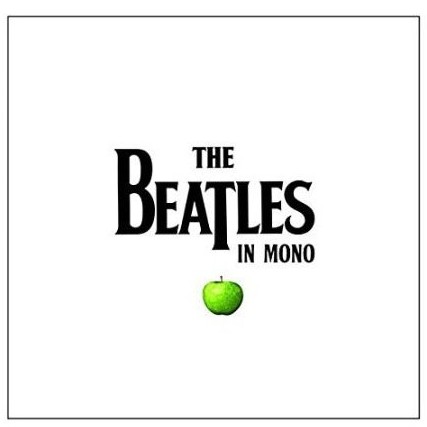
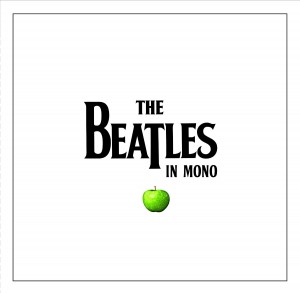
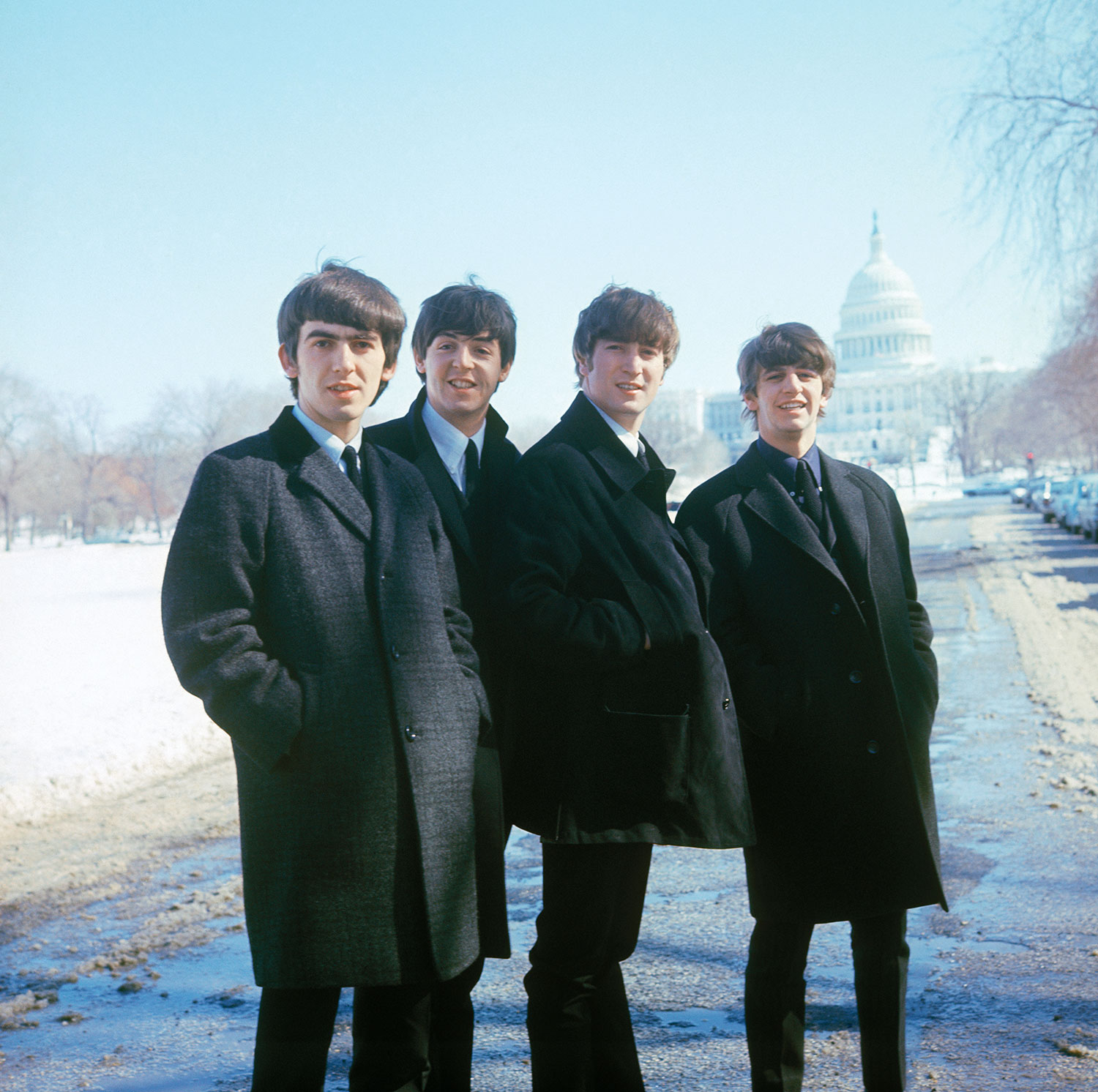
 Reviews
Reviews
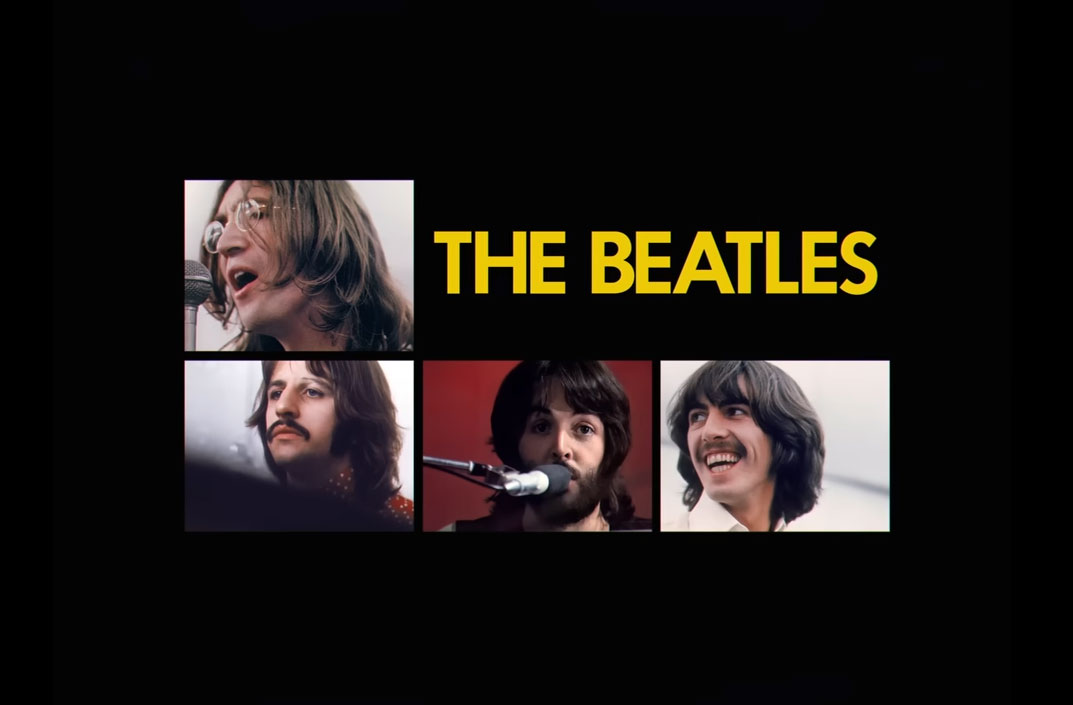
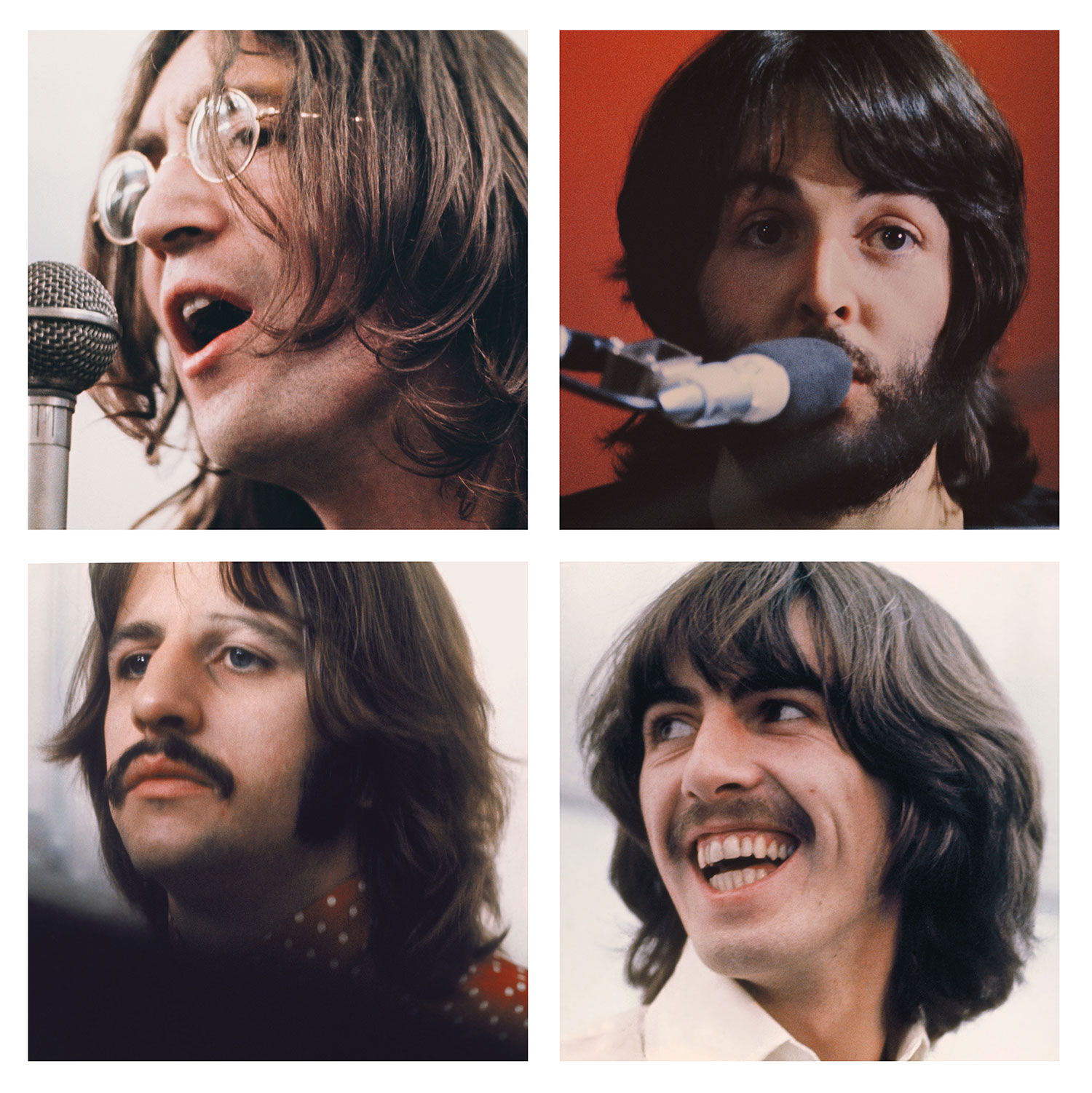
“Any LP, it doesn’t matter if it’s a mono or a stereo record, has only one groove. So, my question about one or two grooves on records turned out to be ambiguous and illogical. Sean understood the question literally and responded correctly: yes, it’s only one groove, and yes, it’s a mono one.
What’s important here is the fact that he was using a Neumann SX74 which is a stereo cutting head. So, it seems that the records contain two signals in the grooves, and the signals are identical for both channels.”
You’re creating a distinction where one doesn’t exist. A mono cutter and a stereo cutter fed a mono signal will produce the same result: a groove with only lateral motion, and no vertical motion. Barring any sort of imbalance in the left and right signal paths, the end result will be the same.
I’ve compared my 1970s blue boxed set of Beatles vinyl with the new mono vinyl set and found that the 1970s vinyl is significantly louder that the mono version. Why is this?
I left the amplifer settings exactly the same, just alternated between the same album from the mono set and the blue boxed set.
Dear Sir, I have a Beatles 3 1/4 inch twin track mono tape record. of the Beatles “With the Beatles” 1963 which when I opened the original box the Tape was damaged.
Can this be re-recorded or repaired.>
Can you advise or help,
thank you.
I also have Help with side 1 on both sides. It is labelled correctly. I imagined the pressing plants are automated, so how can this happen?
Bought the LP from a HMV store.
Anyone bought help re issue with side one on both sides? I just received my copy in this way. I got side one starts with the help and side 2 yep is also help
Wonderful music
Keep it coming
I recently listened to the new remastered Mono vinyl sgt peppers album
and I have that there were a number of pops on the start of With-in with-out you (and not due to any marks on the vinyl) plus there was a stark difference in the track Lovely Rita where it seemed as it was stereo then
to mono and then the sound moved to the right channel only for the last half of the track. Bit odd?
Happy to know that the compilation box sets are coming in 2015 and 2016
Please clarify about stereo past master to be got from analogue master tape
Hi
Great Q&A and thank you! Are the US version different from the UK version? And -IF I WANT TO buy a MONO Cartridge, do I get 1MIL or .7MIL? And if not – can my Grado Stereo Cartridge be just a good to get great fidelity – and do I need to push the MONO button in?
Thanks
Art
Thank you Super Deluxe Edition for affording us the oportunity to ask these two important figures in the history of Beatles music reproduction these questions. A delightful read including the responses!!
You are very welcome Bill. Thanks for stopping by! Glad you enjoyed it.
CONGRATULATIONS FOR THE GREAT WORK YOU DID WITH THIS NEW BEATLES BOXSET ,I´M VERY HAPPY WITH THE GREAT
SOUND OF THE RECORDS, AND WITH THE BEAUTIFUL PRESENTATION ….THANK YOU VERY MUCH
Thanks Sean and Steve for taking the time to answer my questions. This Mono project from all I’ve read was a mountain to climb. The sound of these new LP’s are superb but the best part is my kids will grow up knowing the true sound of the Beatles.
Also a big thanks to Super Deluxe Edition for publishing this Q&A for us all.
Glad you enjoyed it and found it informative Scott!
Wow…. can’t wait for the next two Beatles Vinyl Box Sets to be released in 2015 and 2016.
2015 – “The Beatles Compilation Box Set In Stereo” on heavyweight vinyl featuring “A Collection Of Beatles Oldies”, the “Red” and “Blue” Double Albums, “Rock ‘n’ Roll Music” Double Album, the “Love Songs” Double Album, the “Reel Music” Album, the “20 Greatest Hits” album and finally the “Past Masters Volumes 1 & 2” album will all tracks being the 2009 re-mastered versions of the songs.
Then In 2016 a new box set entitled “The Beatles Compilation Albums In Mono” featuring all of the albums in the 2015 box set, but this time on exclusively pressed extra heavyweight vinyl and featuring the 2009 stereo remastered songs remixed specifically for mono so that you can hear the songs as George Martin and The Beatles originally intended….
As for my “Mono Albums” vinyl box, I was generally lucky. All of the records were flat, and the labels were all on-center. 27 of the 28 L.P. sides had the grooves on-center. The lone exception was L.P. 1/Side 2 of “Mono Masters”, but luckily, the grooves weren’t off-center enough to be audible.
“Beatles For Sale” had a creased rear album cover. The “Sgt.Pepper’s Lonely Hearts Club Band” record was quite scuffed on both sides(though these scuffs didn’t produce any audible noise), but the only significant audible noise in the entire boxed set was a repetitive low-pitched thump during the orchestral “tune-up” intro of the song “Sgt.Pepper’s Lonely Hearts Club Band”.
Compared to the fiasco I encountered with the U.S.A.-pressed stereo vinyl box, the mono box was comparatively excellent. As for getting an entirely perfect vinyl boxed set, that isn’t going to happen in 2014. They just don’t make ’em like they used to….not even in Germany.
Ok, so we now know that the groove carries a stereo signal, albeit one with identical left-right channels. So it there any benefit then, to playing these records back with a mono cartridge?
Does anyone know whether any mono LP reissues these days are actually cut with mono cutter heads?
I’d like to know this too. Before I spend money on a cartridge or fiddle with Y-Adapters or jumping my cartridge pins.
Thanks SDE for setting up this Q&A with Magee & Berkowitz. Though sometimes their answers were a bit nebulous, overall this forum shined some light on the project and the process for completing it. Also, overall thanks for the weekly posts you guys make–if it wasn’t for you I’d either be spending way more money on releases, or buying a helluva lot fewer of them.
That being said… my Beatles Mono vinyl box arrives Friday, but alas, my turntable is down and I can’t afford to fix it yet! Boo hoo!
Great interview…though it looks like, whenever Steve Berkowitz is a little embarassed by a question, he tends to always answer ”The goal of the new MONO vinyl Beatles re-issues is for them to sound and feel as close to the originally releases. They sound great!!”
:D
Follow-up to David Olstein and everyone interested in stereo/mono signal on these vinyls
Guys at SH forum have pointed out my serious mistake that led to some misunderstandings. I misused the word “groove” – i should have asked about “left-right signals or channels” instead.
Any LP, it doesn’t matter if it’s a mono or a stereo record, has only one groove. So, my question about one or two grooves on records turned out to be ambiguous and illogical. Sean understood the question literally and responded correctly: yes, it’s only one groove, and yes, it’s a mono one.
What’s important here is the fact that he was using a Neumann SX74 which is a stereo cutting head. So, it seems that the records contain two signals in the grooves, and the signals are identical for both channels.
Hello Artyom: ¿Will be a different sound using a mono or a stereo cartridge.?
Been waiting for these for a long time. As long as it sounds better than the stereo vinyls I will be very happy. Btw, my box arrived today. The thing weighs a ton!
Very interesting and very much appreciated.
Many thanks to all who gave their Q’s and the A’s!
to David Olstein
David, you are absolutely right! When I read some reviews at other websites, I learned that they were using SX74. As it is a stereo cutter head, I assumed that the records were in parallel stereo (i.e. stereo signal with identical signal from both channels).
After the guys’ answers it has become even more confusing. How could they get a pure mono record with a stereo cutter head?
Perhaps other owners of the box set could suggest something or clarify the issue. I do think we need a microscope now!
Anyway, it was a fascinating read. The guys are sooooooo devoted that you can actually see all the love and appreciation they have put into recreating the Beatles’ original intentions. They have breathed life into one of the greatest historical documents of music, art, technology and innovations of the 20th century, and we should be immensely proud of them.
Thanks Sean, Steve and all the production team!
Love the set every single song…EXCEPT Help and that first side of that LP. What happened there, the songs re muffled. ? HELP the song sounds like Crap. But everything else aside from that side sounds better than the UK originals. I would have as asked about HELP!
Wow.
Fascinating reading.
Thanks!
My last post came off a bit harsh. It’s great these guys took the time to answer our questions. And overall they did a terrific job. Although it seems unlikely based on their answer to Questino 17, I do hope they get the chance to go back and re-cut the stereo LPs using an all-analog mastering chain.
Confusing answers at to the cutting issues. On the one hand, they confirmed that they used a stereo cutter head and not a mono cutter head (see question 20). On the other hand, they said the groove consisted of a single mono channel, not two channels containing identical L/R info (see question 30). These answers can’t both be right, can they?
Also a bit disappointed that these guys were apparently unaware of the difference in sound between the “dry” single version of Please Please Me and the “wet” album version.